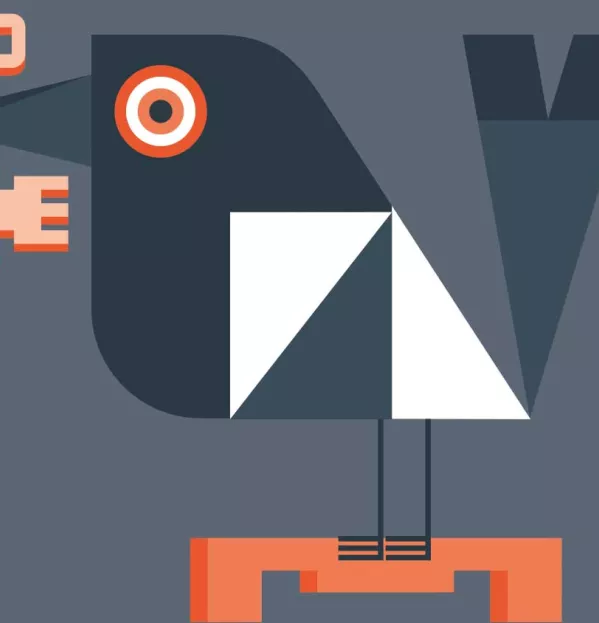Being a research magpie can bring glittering rewards

The temptation when starting out on a research journey is to focus on education research specifically. And you would find a lot to read through: plenty of research deals directly with education. However, research from other disciplines can also provide interesting perspectives on classroom practice. There’s a lot of value in being a research magpie, stealing insights from other areas to help improve education.
So here is my guide to four areas you might not seek out naturally but where fantastic insights reside.
* Cognitive psychology is itself a magpie discipline, drawing from psychology, computer science, behavioural sciences and neuroscience. One of the founding fathers of cognitive psychology is Herbert Simon, a Nobel Prize-winning polymath who pioneered lots of the early work into artificial intelligence. And a lot of the early research into artificial intelligence ran alongside research into human intelligence. One of the major insights from this field is about the importance of attention. We remember and learn what we pay attention to, but our attention is severely limited to about four to seven new items of information at any one time. This led Professor Daniel Willingham, in Why Don’t Students Like School?, to say that “the most general and useful idea that cognitive psychology can offer teachers” is to “review each lesson plan in terms of what the student is likely to think about”. This is because pupils remember what they think about, and what’s remembered is what’s learned.
* Assessment has more obvious links to education than many other research fields, but it is surprisingly under-taught in training. The Carter review of initial teacher training found that “there are significant gaps in both the capacity of schools and ITT providers in the theoretical and technical aspects of assessment”. Given how much time schools spend collecting and analysing assessment data, and the impact this can have on workload, this feels like an oversight. Some understanding of the power and limitations of assessment can be transformative. Daniel Koretz, professor of educational assessment at Harvard University, argued in Measuring Up that glossing over the technicalities of assessment has led to “major misunderstandings” and an inability to resolve “bitter controversies about testing”. Not only does a better understanding of assessment offer many immediate benefits in the classroom, it also has wider implications for testing the effectiveness of interventions and new approaches to teaching. In this sense, assessment can be seen as just another type of measurement, and accurate measurement is a long-standing preoccupation of many scientists. Which brings us to the next category…
* Philosophy of science can help teachers in two quite different ways. First, it offers a way of navigating through any contested argument, of which there are plenty in education at the moment. In The Structure of Scientific Revolutions, Thomas Kuhn writes about the way scientific paradigms change, how knowledge advances and how and why scientists change their minds. His work offers some ideas as to when you should accept one theory over another. Second, the work of Kuhn - and also Michael Polanyi - provides enormously valuable insights about how we can communicate difficult concepts. For example, Kuhn asks why it is that science textbooks have “problem sets” at the end of each chapter: why can’t students just read the chapter? The answer is that we learn through examples. Different people can read the chapter and understand it in very different ways. The “problem sets” provide examples that clarify meaning. Examples help us to communicate notions of quality, too, and they are far more effective than rubrics or mark schemes that attempt to define quality with vague phrases like “analyses text effectively” or “analyses text with originality and insight”.
* “The history of technology” can sound like a bit of an oxymoron. In a world with iPads and virtual reality, it is easy to take some of humanity’s older and more foundational innovations for granted. We may not even think of writing and numbers as technologies, because we are so familiar with them. Reading about their history reminds us that they are human inventions, and it also sheds some useful light on how we should teach them. Writing systems, for example, evolved over centuries, from the symbolic cuneiform and hieroglyphics of the Mesopotamians and Egyptians, to the alphabetic principle of the Phoenicians and the addition of letters for vowels by the ancient Greeks. Language Visible by David Sacks gives a history of the alphabet we use to write English today, with sections for each letter. Numbers and the Making of Us by Caleb Everett explores how humans learned to count, and how some indigenous societies have very different conceptions of number. Perhaps the biggest lesson to take from this history is just how difficult and unlikely these inventions were. Our modern alphabet and number system were developed and refined over centuries by some of the greatest minds in history. There is nothing natural about them, and we can’t expect children to pick them up naturally, either.
Daisy Christodoulou is director of education at No More Marking and the author of Making Good Progress? and Seven Myths About Education. She tweets @daisychristo
You need a Tes subscription to read this article
Subscribe now to read this article and get other subscriber-only content:
- Unlimited access to all Tes magazine content
- Exclusive subscriber-only stories
- Award-winning email newsletters
Already a subscriber? Log in
You need a subscription to read this article
Subscribe now to read this article and get other subscriber-only content, including:
- Unlimited access to all Tes magazine content
- Exclusive subscriber-only stories
- Award-winning email newsletters